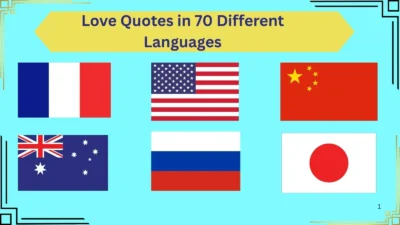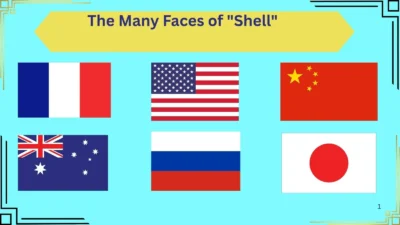If you’re learning English, the phrase “thank you” is one of the most important expressions to master. It’s a polite way to show appreciation or gratitude when someone helps you, gives you something, or does something kind. Some learners get confused about when to use “thank you” versus “thanks,” or how to respond when someone says it to them. Understanding that “thank you” is slightly more formal and widely accepted in both casual and professional situations helps you sound respectful and confident in conversations.
Europe
- Albanian – Faleminderit
- Basque – Eskerrik asko
- Belarusian – Дзякуй (Dziakuj)
- Bosnian – Hvala
- Bulgarian – Благодаря (Blagodarya)
- Catalan – Gràcies
- Croatian – Hvala
- Czech – Děkuji
- Danish – Tak
- Dutch – Dank je / Dank u
- Estonian – Aitäh
- Finnish – Kiitos
- French – Merci
- Galician – Grazas
- German – Danke
- Greek – Ευχαριστώ (Efharistó)
- Hungarian – Köszönöm
- Icelandic – Takk
- Irish – Go raibh maith agat
- Italian – Grazie
- Latvian – Paldies
- Lithuanian – Ačiū
- Macedonian – Благодарам (Blagodaram)
- Maltese – Grazzi
- Norwegian – Takk
- Polish – Dziękuję
- Portuguese – Obrigado (♂) / Obrigada (♀)
- Romanian – Mulțumesc
- Russian – Спасибо (Spasibo)
- Serbian – Хвала (Hvala)
- Slovak – Ďakujem
- Slovenian – Hvala
- Spanish – Gracias
- Swedish – Tack
- Ukrainian – Дякую (Dyakuyu)
- Welsh – Diolch
Asia
- Arabic – شكراً (Shukran)
- Armenian – Շնորհակալություն (Shnorhakalut’yun)
- Azerbaijani – Təşəkkür edirəm
- Bengali – ধন্যবাদ (Dhonnobad)
- Burmese – ကျေးဇူးတင်ပါသည် (Kyay zu tin par tal)
- Chinese (Mandarin) – 谢谢 (Xièxiè)
- Filipino (Tagalog) – Salamat
- Georgian – გმადლობთ (Gmadlobt)
- Hindi – धन्यवाद (Dhanyavaad)
- Indonesian – Terima kasih
- Japanese – ありがとう (Arigatō)
- Kannada – ಧನ್ಯವಾದಗಳು (Dhanyavādagaḷu)
- Kazakh – Рақмет (Raqmet)
- Khmer – អរគុណ (Orkun)
- Korean – 감사합니다 (Gamsahamnida)
- Kurdish – Spas
- Malayalam – നന്ദി (Nandi)
- Nepali – धन्यवाद (Dhanyavād)
- Persian (Farsi) – متشکرم (Moteshakeram)
- Punjabi – ਧੰਨਵਾਦ (Dhanvaad)
- Sinhala – ස්තූතියි (Sthuthiyi)
- Tamil – நன்றி (Nandri)
- Telugu – ధన్యవాదాలు (Dhanyavādālu)
- Thai – ขอบคุณ (Khop khun)
- Turkish – Teşekkür ederim
- Urdu – شکریہ (Shukriya)
- Uzbek – Rahmat
- Vietnamese – Cảm ơn
Africa
- Afrikaans – Dankie
- Amharic – አመሰግናለሁ (Ameseginalehu)
- Hausa – Na gode
- Swahili – Asante
- Yoruba – Ẹ ṣé
- Zulu – Ngiyabonga
Meta-Analysis
- Most Common Root: Many European languages derive from Latin (Gratias → Gracias, Grazie).
- Shortest: Takk (Norwegian/Icelandic), Dankie (Afrikaans).
- Longest: Shnorhakalut’yun (Armenian).
- Unique: Go raibh maith agat (Irish) literally means “May you have goodness.”
🌍 Languages: Meaning, Purpose & How to Use Them in Daily Life
Why Are People Searching for “Languages”?
In today’s fast-moving and connected world, many people are searching for the word “languages” because they feel the need to connect, understand, and grow. Whether it’s for travel, career, study, or curiosity, people want to know what languages are, why they matter, and how to use them effectively in real-life conversations.
If you’re one of them, you’re in the right place. This article explains everything you need to know about languages — what they are, why they’re important, and how learning and using them can improve your personal and professional life.
What Does “Languages” Mean?
A language is a system of communication used by a particular group of people. It includes spoken words, written symbols, and sometimes even gestures (like sign language). There are over 7,000 languages spoken around the world today — from widely spoken ones like English, Mandarin, and Spanish, to indigenous and endangered ones with just a few speakers.
When we say languages, we often mean:
- Natural human languages (English, Arabic, Hindi, French, etc.)
- Programming or computer languages (like Python or JavaScript)
- Sign languages (like ASL – American Sign Language)
But in everyday conversation, languages mostly refer to human spoken or written languages.
What Problem Does This Solve for You?
Understanding languages solves multiple problems:
1. Better Communication
You can talk to people from other countries, make friends, and understand different cultures.
2. Career Opportunities
Knowing more than one language is a powerful skill. It helps in jobs like customer service, teaching, translation, international business, and more.
3. Travel and Exploration
If you love traveling, knowing basic phrases in the local language makes your trip smoother and more enjoyable.
4. Cognitive Benefits
Learning a new language improves your memory, multitasking skills, and even delays age-related brain decline.
How to Use the Word “Languages” in Conversation
Here are some simple and practical sentences:
- “How many languages do you speak?”
- “I’m learning new languages online.”
- “Languages help us connect with people globally.”
- “This school teaches five different languages.”
- “Coding languages are also important in today’s tech world.”
By using the word in these ways, you’re showing interest in communication, diversity, and learning.
Why Learn More Than One Language?
Multilingual people have an edge. They can:
- Think differently (each language shapes thought)
- Understand cultural expressions and humor
- Build deeper personal and professional relationships
- Compete better in the global job market
Even learning a few key phrases like hello, thank you, and goodbye in another language shows respect and curiosity — qualities that go a long way.
How to Start Learning Languages
Here are some easy, low-cost ways to start learning:
- 📱 Use apps like Duolingo, Babbel, or Memrise
- 📖 Watch movies or read books in other languages
- 🎧 Listen to music or podcasts in different languages
- 💬 Talk to native speakers through language exchange websites
Start with simple daily-use words like greetings, numbers, days of the week, and common verbs. Practice a little every day — consistency is key!
Conclusion:
Languages are more than just words. They’re tools for understanding, bridges between cultures, and keys to opportunity. Whether you’re looking to travel, grow your mind, get a better job, or simply connect with others, learning and understanding languages is one of the smartest things you can do.
So next time you hear someone say “languages,” think about how powerful they truly are — and how they can open doors for you too.



